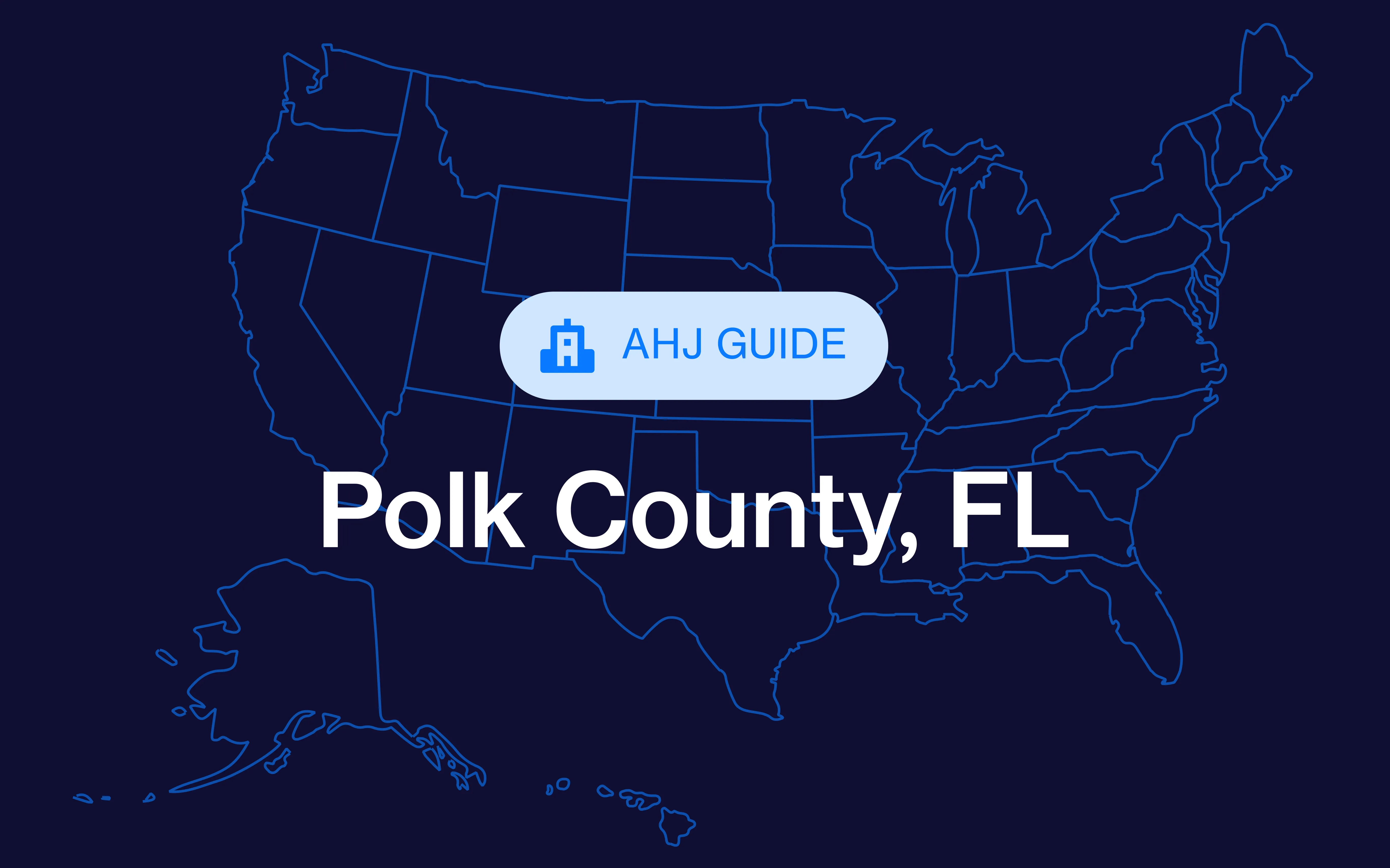Most contractors get started with the accounting basics — a simple spreadsheet or generic tools like QuickBooks. But as projects begin to grow in size and scope, these solutions can quickly become limiting.
If you’re trying to scale your business, it might be time to invest in construction accounting software.
These platforms are designed specifically to handle the unique financial demands of construction projects, from job costing and certified payroll to progress billing and retention tracking.
This guide covers:
- What to look for in accounting software for your construction company
- The differences between generic and construction-specific accounting software
- The best construction accounting software
When is a business “big enough” for construction accounting software?
There is no right or wrong answer to this question – it all depends on the complexity of your business and how you choose to manage it.
Some contractors can get by with spreadsheets for a while, but once you’re juggling multiple jobs, crews, and cash flows, those simple systems start showing their limits.
Some other signs that your business might be ready for construction accounting software include:
- Job costs are hard to separate from overhead.
Tracking expenses by project (not just by company) is a constant headache. - Your payroll isn’t straightforward.
Managing a mix of employees, union labor, and subcontractors takes more than a basic payroll system. - Cash flow forecasting is mission-critical.
If you’re bidding on bigger jobs or working with tight margins, you need clear financial visibility. - Manual entry is slowing you down.
When invoices, payments, and expenses live in too many places, mistakes and delays pile up.
What to look for in construction accounting software
Not all accounting software is built with contractors in mind. The right system should solve the unique financial challenges that come with managing multiple jobs, crews, and cash flows.
When you’re evaluating options, look for these features:
- Job costing and project-based accounting
Track profit and loss by job - Payroll and contractor management
Handle complex pay structures, subs, and certified payroll - Invoicing and billing automation
Streamline progress billing, retainage, and change orders - Integration with project management tools
Keep schedules and budgets aligned - Real-time reporting and forecasting
Access dashboards that display important business information at a glance such as cash flow, WIP reports, and profitability - Mobile accessibility
Allow field staff and project managers to submit expenses and view reports on the go
Generic accounting software vs. Construction-specific software
One of the first decisions contractors face when considering accounting software is whether to use a generic accounting tool or invest in a construction-specific platform.
Generic software
- Pros:
- Affordable
- Easy to use
- Widely supported by accountants
- Great for small businesses just starting out
- Cons:
- Limited construction functionality
- Often requires workarounds for job costing, change orders, and progress billing
Construction-specific software
- Pros:
- Designed with contractors in mind
- Handles job costing, certified payroll, subcontractor compliance, and WIP reporting out of the box
- Cons:
- Typically higher cost
- Steeper learning curve
- May have too many functionalities for very small businesses.
Bottom line: If you’re just getting started with smaller projects, generic accounting software with construction-specific add-ons might be enough. But if you’re managing multiple crews, bidding on larger jobs, or dealing with strict compliance requirements, construction accounting software may be the smarter and safer investment.
Best construction accounting software in 2026
1. QuickBooks Online + Construction Add-Ons
Best small construction accounting software
QuickBooks for contractors is one of the most widely used accounting systems. With construction-specific add-ons like Knowify or Buildertrend, it can be customized for the specific needs of your construction business. It’s affordable, easy to find bookkeepers who understand it, and integrates with many third-party tools.
Features
- General accounting and bookkeeping
- Job costing with construction add-ons
- Invoicing and progress billing
- Payroll management
- Integrations with third-party tools (Buildertrend, Knowify, etc.)
Pros and cons
Pricing
QuickBooks Online for Construction starts at $38/month. Construction-specific add-ons like Knowify or Buildertrend cost extra.
2. Sage 100 Contractor
Best for midsize to large construction firms
Sage is a heavyweight in construction accounting. Sage 100 Contractor offers robust job costing, payroll, project management integration, and strong reporting features. It’s ideal for contractors who need advanced financial visibility and compliance tools.
Features
- Advanced job costing and WIP reporting
- Payroll and subcontractor compliance
- Progress billing and change order management
- Strong integration with project management tools
- Scalable architecture for larger firms
Pros and cons
Pricing
Sage doesn’t publish pricing on its website. Reach out to them for a custom quote.
3. Procore + Integrated Accounting
Best for commercial builders
Procore is primarily known as a construction project management powerhouse, but with accounting integrations, it becomes a central hub for managing both construction and finances. Its strengths lie in collaboration and reporting, making it an ideal combination for larger commercial builders.
Features
- Project management plus accounting integrations
- Job costing and budget tracking
- Progress billing and compliance
- Real-time dashboards and reporting
- Collaboration tools for contractors and subs
Pros and cons
Pricing
Custom pricing only. Generally considered premium, with costs scaling based on company size and projects.
4. Foundation Software
Best for government contractors and compliance-heavy jobs
Foundation is built specifically for contractors and shines in areas like certified payroll, job costing, and compliance tracking. This makes it a particularly strong competitor for companies that handle government projects where reporting requirements are strict.
Features
- Certified payroll and Davis-Bacon compliance
- Job costing and WIP reporting
- Retainage and contract tracking
- Integration with other construction tools
- Desktop-based with optional cloud hosting
Pros and cons
Pricing
Foundation doesn’t publish pricing on its website. Reach out to them for a custom quote.
5. Buildertrend
Best for residential builders and remodelers
Buildertrend is an all-in-one platform tailored for homebuilders and remodelers. Beyond project scheduling and client communication, it comes with robust financial tools — including budgeting, invoicing, purchase orders, and payment tracking — so contractors don’t have to rely on third-party accounting integrations.
Features
- Project scheduling and client communication
- Budgeting and cost tracking
- Invoicing and payments
- Mobile app for field teams
- Change order management
Pros and cons
Pricing
Foundation doesn’t publish pricing on its website. Reach out to them for a custom quote.
6. Knowify
Best for home service contractors and specialty trades
Knowify is a cloud-based platform designed specifically for contractors in trades like HVAC, plumbing, electrical, and solar. It combines project management with a full suite of accounting and financial reporting tools, so you can handle everything from job costing to invoicing without needing a separate integration.
Features
- Job costing and project-based accounting
- Invoicing, billing, and purchase order management
- Time tracking for employees and subs
- Full financial reporting (profit & loss, cash flow, WIP reports)
- Mobile access for field crews
- Quickbooks integration
Pros and cons
Pricing
Knowify plans start at $99/month for the Core plan. The Advanced plan is $249/month. A free trial is available.
7. Jonas Premier
Best for larger contractors and specialty subcontractors
Jonas is a construction-specific enterprise resource planning (ERP) system that covers everything from project accounting to service management. It’s cloud-based and highly scalable, making it a strong fit for larger contractors and speciality firms.
Features:
- Full construction ERP (accounting + project management)
- Job costing and WIP tracking
- Service and subcontractor management
- Cloud-based, scalable architecture
- Reporting and forecasting tools
Pros and cons
Pricing
Custom pricing; typically premium-level with longer implementation timelines.
How to implement accounting software into your construction business
Adopting new software shouldn’t stall your normal business operations or become a major disruption. Here are a few steps to ensure a smooth transition into your new accounting software:
- Clean and maintain your existing records before migration to ensure any data carrying over is accurate.
- Start with training your accounting staff, then gradually onboard project managers and field staff.
- Leverage vendor training — most accounting software providers offer onboarding programs to shorten the learning curve
- Run both your old system and new system at the same time for a short period of time to validate accuracy.
- Communicate benefits clearly to your staff so adoption feels like an upgrade, not a burden to their process.
The most important part of this process is integration — make sure that all of your systems, like your project management software, payroll, permit tracking software, and CRM tools all connect for a unified workflow.
Complement accounting software with permitting software
Strong accounting software gives you a clear view of project finances, but it doesn’t keep jobs moving if permits stall. Many contractors find that even when their financial systems are dialed in, bottlenecks at the permitting stage still eat away at profitability.
That’s why pairing construction accounting software with permit management software creates a more complete tech stack. Accounting tools handle job costing, payroll, and cash flow forecasting, while permitting software ensures your approvals are filed accurately, tracked in real time, and never forgotten in a stack of paperwork.
Together, the two give you both sides of the equation: financial visibility and project momentum.
👉 Learn how PermitFlow can strengthen your construction tech stack. Talk to one of our permitting experts today.








